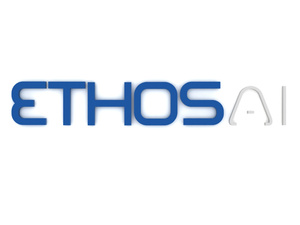Harnessing the Power of Responsible AI for Social Good
الجسم
The Importance of Responsible AI
Responsible AI involves designing and using AI systems in ways that prioritize ethical considerations, transparency, and accountability. The growing influence of AI on various aspects of daily life—ranging from healthcare and education to finance and governance—necessitates a framework that ensures these technologies benefit society as a whole. Key principles of responsible AI include fairness, inclusivity, privacy, and safety. By adhering to these principles, AI can be a force for positive change, addressing societal challenges and promoting equity.The Role of AI Audits in Ensuring Responsibility
AI audits are critical in the realm of responsible AI. These audits involve a systematic evaluation of AI systems to assess their adherence to ethical guidelines and regulatory standards. The process typically includes examining the data used for training, the algorithms employed, and the outcomes produced by the AI system. AI audits help identify and mitigate potential biases, ensure transparency in decision-making processes, and validate that AI systems operate fairly and without unintended consequences.
Regular AI audits are essential for maintaining accountability and trust in AI technologies. They provide a structured approach to scrutinize AI systems, ensuring that they align with ethical norms and are designed to benefit society. By conducting thorough audits, organizations can address issues proactively and demonstrate their commitment to responsible AI practices.
EthosAI: Leading the Charge in Ethical AI Development
EthosAI is at the forefront of promoting ethical AI practices and bridging the gap between technology and ethics. As a pioneering initiative, EthosAI focuses on integrating ethical considerations into every stage of AI development—from conception to deployment. The initiative emphasizes the importance of aligning AI technologies with societal values and ethical standards, advocating for transparency, inclusivity, and accountability.
EthosAI’s approach involves establishing comprehensive guidelines and best practices for AI development. This includes fostering collaboration among stakeholders, including researchers, developers, policymakers, and civil society, to create a shared understanding of ethical AI. By leading efforts in responsible AI development, EthosAI aims to ensure that AI technologies are designed to enhance social good and address pressing global challenges.
Practical Applications of Responsible AI for Social Good
Harnessing responsible AI for social good involves implementing AI technologies in ways that directly benefit communities and address critical issues. Some notable examples include:
1. Healthcare Innovations: AI can improve healthcare outcomes by enhancing diagnostic accuracy, personalizing treatment plans, and predicting disease outbreaks. Responsible AI practices ensure that these technologies are accessible, equitable, and designed to address health disparities.
2. Education: AI-powered educational tools can provide personalized learning experiences, support educators, and improve student engagement. Responsible AI ensures these tools are inclusive, unbiased, and designed to support diverse learning needs.
3. Environmental Sustainability: AI can contribute to environmental conservation efforts by optimizing resource usage, monitoring environmental changes, and predicting climate impacts. Ethical AI practices ensure that these technologies are used responsibly and support sustainable development goals.
4. Social Justice: AI can play a role in advancing social justice by identifying and addressing systemic biases, supporting marginalized communities, and promoting fair practices. Responsible AI helps ensure these technologies are used to drive positive social change and reduce inequalities.
Conclusion
Harnessing the power of responsible AI for social good requires a commitment to ethical principles and practices that prioritize the well-being of society. AI audit play a crucial role in maintaining accountability and transparency, while initiatives like EthosAI lead the way in integrating ethics into AI development. By focusing on these aspects, we can ensure that AI technologies are developed and deployed in ways that benefit all of humanity, addressing pressing global challenges and promoting a more equitable and just world.












تعليقات